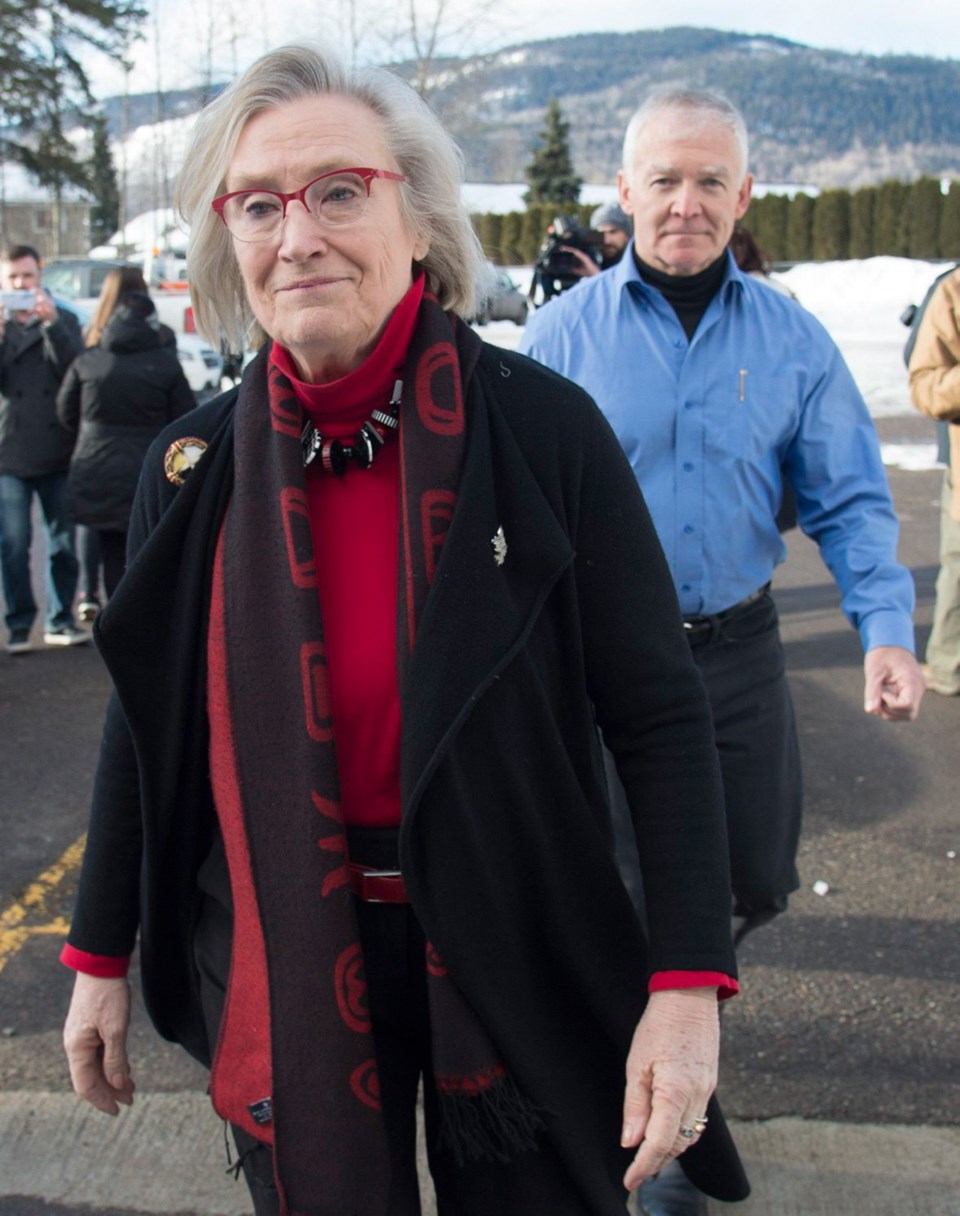After a weekend of intense negotiations about the Wet’suwet’en hereditary chiefs’ opposition to a natural gas pipeline, Canadians now have their own quid pro quo to argue about.
Not a sleazy deal like the one that featured in U.S. President Donald Trump’s impeachment. If it exists at all in the pipeline crisis, it would be more of an understanding that governments have received something in return for catapulting implementation of Wet’suwet’en title to their territory onto a fast track.
Progress on that front would be a general benefit. But they need a specific win on the pipeline. There’s no sign of that in any of the weekend developments.
The argument is the mirror image of the U.S. version, in that a quid pro quo here would be welcome news. The absence of any indications will raise questions about whether Canada and B.C. were outplayed over the weekend.
No pronouncements can be made until the agreement is made public. But there’s no sign of any quid pro quo today. Everyone made clear that the rights and title issue and the pipeline are two different things. “Two separate conversations,” said federal Crown-Indigenous Relations Minister Carolyn Bennett.
So the holdout Wet’suwet’en hereditary chiefs have apparently won promises that their title issues will move from the back burner to become top priority for both governments. And they’ve done so without having to give an inch on the pipeline, as the governments acknowledge.
The still-vague understanding or “arrangement” that was announced Sunday is an overwhelming victory for them. The Wet’suwet’en and another nation pushed the title claim — the Delgamuukw case — to the Supreme Court of Canada in the 1990s. They lost, but won judicial acceptance of the idea of Aboriginal title. A working definition of what the phrase means was handed down, which was a major advance. But bringing it into effect stalled out for a variety of reasons.
Now, after 23 years, implementing rights and title issues over a big swath of northern B.C. is a top priority.
The arrangement is better than having the doors slammed shut and hostilities escalate. But it also hints that any joint understanding on the pipeline is a long-term project. And there’s much stress that it’s completely independent from the rights and title tentative understanding.
Bennett said the proposed arrangement is about “making sure this never happens again.”
It doesn’t even make sure it stops happening in the present.
Still, Premier John Horgan was encouraged enough to promise at least four times in the legislature that the pipeline is “fully permitted and it will proceed. ... It’s fully permitted, it’s underway and it will be completed.”
B.C. Indigenous Relations Minister Scott Fraser asked for “time and space” to address the various issues. While all three parties initialled a document, Fraser said the pipeline is the “elephant in the room … an issue they’ve agreed to disagree on.”
There’s a school of thought that committing to break the logjam on recognizing Aboriginal title will bring the holdout hereditary chiefs to a table with the elected chiefs, all of whom have signed on as supporters of the project.
That could created a dynamic where opposition eases, although it would likely take time.
The question of the day in the house was: “Did the government receive any assurances that protests and blockades will end?”
No, they didn’t. Because they didn’t ask.
“I don’t believe it would have been appropriate for us to … go to Wet’suwet’en territory and tell some individuals to have different point of view,” said Horgan.
So the governments opted to talk about the 150-year-old grievance over rights and title instead, as an icebreaker.
It might lead to some resolution of Indigenous opposition to the pipeline. But there’s another camp of protesters from the environmental side. They’ve been drafting behind the Wet’suwet’en to some extent. Whether that opposition abates, or at least stays on the right side of the law, depends on whether the Wet’suwet’en approve the still-secret arrangement in clan talks over the next two weeks, and how they proceed from there.
In the mean time, the governments’ promise to expedite title implementation is a goodwill gesture made as a leap of faith.



